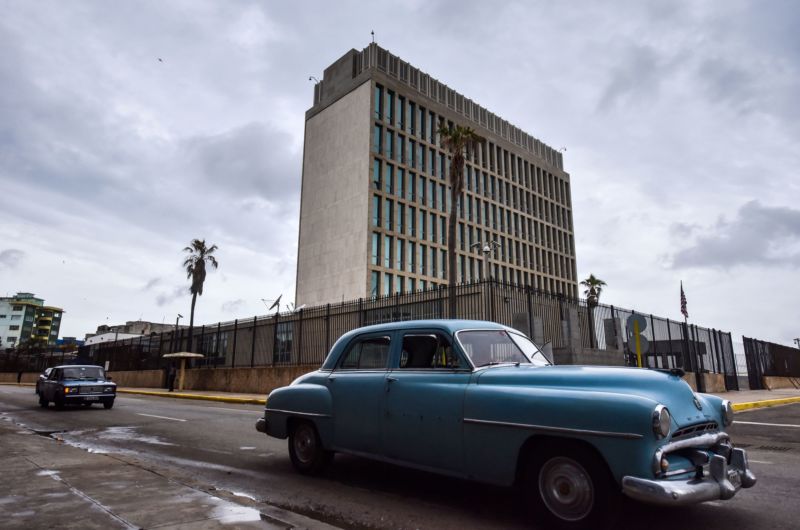
The State Department announced Friday that the US embassy in Havana will now permanently operate with minimum personnel following mysterious “health attacks” that harmed at least 24 Americans, the Associated Press reports.
The attacks occurred from late 2016 to August 2017 and left widespread injuries to brain networks in many of the Americans affected, according to a recent medical case report in JAMA. Those injuries and a wide array of symptoms—from hearing issues, dizziness, to memory problems—developed after diplomats and their families experienced unexplained episodes of directional, irritating sounds, pressure, and vibrations. This initially led some to speculate that a covert “sonic weapon” was involved in the episodes, however scientists and doctors were quick to point out that sounds in the audible range are not known to cause such brain damage.
With ongoing investigations into the attacks, the State Department had pulled nonessential staff from the embassy in October, citing health concerns, and released a travel warning to US citizens. That initial staff drawdown was only temporary, lasting six months, which would have been up this past weekend.
Now, the State Department has set a new staffing plan to include only “the minimum personnel necessary to perform core diplomatic and consular functions.” This would leave just about two dozen staff to perform essential functions, such as aiding traveling Americans. The department also said that the embassy will function as an “unaccompanied post,” which means diplomats will not bring their families to live with them while they’re stationed there.
The AP reports that the downsized staff and travel warning have had “significant effects” on Cuba’s economy and that the embassy had halted visa processing for Cubans who wish to travel to the US. Cubans must now seek visas through US embassies in other countries.
Still, Secretary of State Rex Tillerson signed off on the plan, which the department explained in a statement Friday was out of concern for “the health, safety, and well-being of US government personnel and family members.”
“We still do not have definitive answers on the source or cause of the attacks, and an investigation into the attacks is ongoing,” the department said.
In December, an investigation by a panel of Cuban scientists concluded that there likely were no attacks. The panel determined that the most likely explanation was mass psychogenic illness (MPI), which is essentially a collective delusion among a cohesive group of people that a sickness is spreading among them. But the US doctors who evaluated the affected individuals dismissed this idea, noting that their observed symptoms and injuries were not ones that could be consciously or unconsciously manipulated. The doctors also suggested that the noise episodes that led to their symptoms may have merely been associated with the cause—not the direct cause—of their injuries.
Nevertheless, researchers continue to speculate on what the real cause may be. For instance, computer scientist Kevin Fu of the University of Michigan along with Chinese colleagues speculated last week that the piercing and grating noises that victims heard could be due to intermodulation distortion from sources of ultrasounds in office settings, such as room-occupancy sensors. Intermodulation distortion occurs when “two signals having different frequencies combine to produce synthetic signals at the difference, sum, or multiples of the original frequencies,” according to IEEE Spectrum, who reported the researchers’ hypothesis.
The researchers say this phenomenon could explain the sounds heard on a short audio clip of the noise. However, they did not investigate whether they could explain the brain injuries reported in victims.
https://arstechnica.com/?p=1269445

